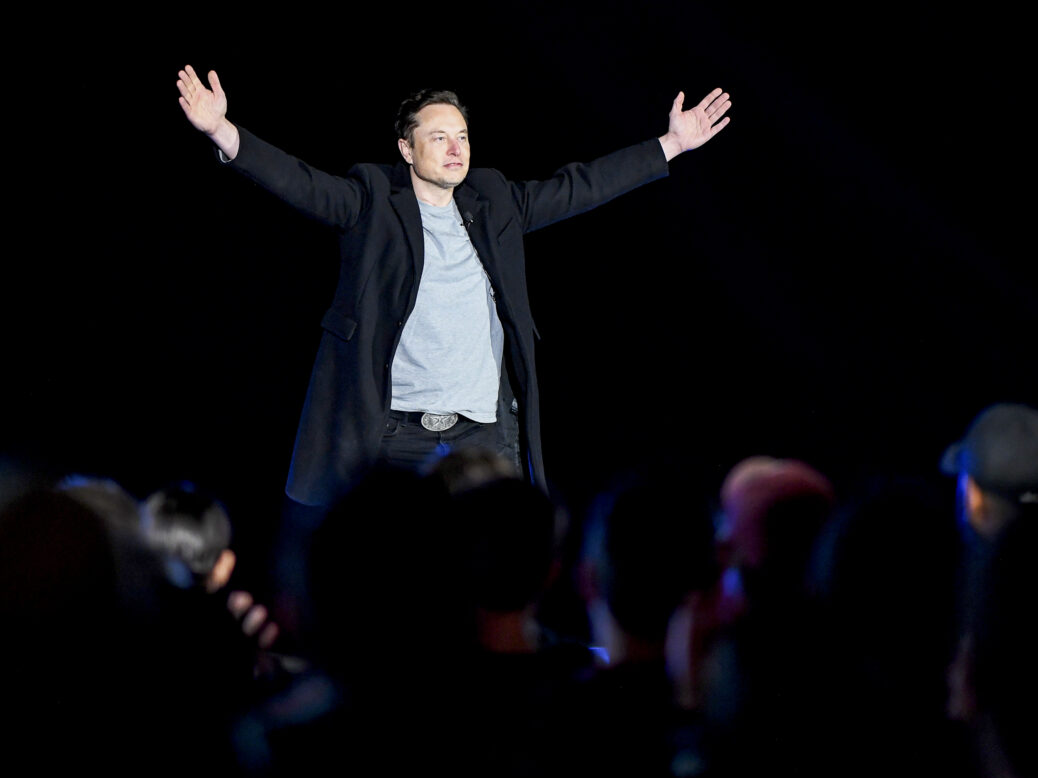
The world’s richest people have a problem: their wealth, which has been inflated by the vast economic stimulus of the last few years, is contracting. One of the more therapeutic things a person can do on the internet is to arrange the Bloomberg Billionaires Index by losses to date, and just marvel at the chunks of cash hewn from corporate titans this year. Top of the list is Mark Zuckerberg, whose adventure in the metaverse has knocked $87.8bn off his personal wealth. (Sorry Mark! Good luck with your website!) Next up is Changpeng Zhao, CEO of the world’s largest cryptocurrency exchange, who has, despite Matt Hancock’s best efforts, lost $72.3bn. Third on the list, having lost $58.6bn this year, is Elon Musk.
No one got richer during the pandemic than Musk, whose wealth ballooned from $30bn at the start of 2020 to more than $330bn in November 2021. This wealth came from a similarly rapid rise in the share price of Tesla, which became the world’s largest car company by market value – but its 19th largest by revenue. Free money – in the form of cheap debt and US stimulus cheques – paid for legions of retail investors to bid Tesla and Musk to ever higher valuations.
Now monetary policy is tightening, interest rates are rising and investors are moving away from speculative tech companies and towards safe haven assets and “defensive” stocks. While the US economy rebounded in the last quarter thanks to foreign demand for American oil, consumer demand is waning and there’s a new market for doomsaying: the CEOs of Goldman Sachs and JP Morgan have said that the US and Europe face a recession that JP Morgan’s Jamie Dimon called a “hurricane”; Jeff Bezos, the founder of Amazon, has warned people to “batten down the hatches” and Musk himself said last week that China – the second biggest and fastest growing market for Tesla – was in a “recession of sorts”.
Of course, Musk went on to say that Tesla was “recession-resilient”, because he was on an earnings call with investors, but the broad truth is that few sectors are as exposed to a recession as the auto industry. During the 2008 crash car sales in the US collapsed by almost 40 per cent and America’s biggest manufacturer, General Motors, was effectively nationalised.
There’s a strong argument that this time around a recession will be worse for car sales, because in 2008 debt actually got cheaper. In common with the housing market, the car market has been artificially inflated by monetary policy (nearly-free borrowing). Nine out of ten cars in the UK are bought on finance, and as these deals get more expensive sales will fall. It is a lot easier to switch to a worse car than a worse house. And while Tesla has raised tens of billions through financial markets, investors are becoming more sceptical: Tesla stock has fallen by 39.1 per cent since the beginning of the year.
Musk has made an enormous fuss about buying Twitter, which he has now completed. He claims he did it because Twitter is “important to the future of civilisation”, but there’s an argument to say it is also very important to the future of Elon Musk; it is a lifeboat – a way to diversify away from his single source of wealth and invest in something more defensive.
After all, Twitter is a platform in which millions of other people have invested their time and effort, mostly for free. Many of the journalists and academics who oppose Musk’s takeover of the platform have tweeted tens of thousands of times, representing months of writing work and years of attention. Given how rare it is for people to stop using a bank or an online store even if they deplore the management, there’s a good chance they’ll tolerate a lot of garbage on Twitter (which, of course, there already is) before giving up that investment.
Twitter may have fewer users than Facebook but Musk is right to say that it has an outsized influence. Many politicians have built their careers on it, most notably Donald Trump. And for Musk, it is arguably his primary means of making money: the socially agreed value of anything he promotes, from Tesla stock to Dogecoin, spreads from his use of the platform.
Tesla is not Musk’s only business. He’s started new companies to explore space, dig tunnels under cities and implant chips into peoples’ brains, and he’s been an energetic promoter of cryptocurrency (it’s notable that one of his backers in the Twitter takeover is Changpeng Zhao). In all of these businesses, it can be argued that what Musk really sells is himself – a vision of a genius businessman making a sci-fi future and a way to invest in that dream. In an economic slump, owning the space where that investment is discussed is certainly a strategy.
Will this work? Being Elon Musk, there’s every chance he’ll just sell Twitter immediately, or get bored of it after six months. He may find it’s more arduous to run than he thought, as he goes from a capricious user of the platform to the person responsible for it. Another very important part of that responsibility will be the $1.2bn a year he’ll have to pay in interest on the money he borrowed to buy Twitter. If it’s a lifeboat, it’s one with a few holes.
[See also: Elon Musk’s mismanagement suggests a dark future for Twitter]





